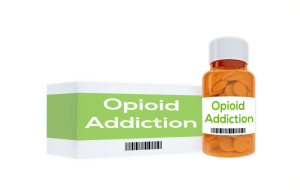From the October 2016 issue of HealthCare Business News magazine
By Leon Reyfman
Opioid abuse is a serious public health issue. In 2014, more than 28,000 people died from opioid overdose, and at least half of those deaths involved a prescription opioid. Many more became addicted to prescription and illegal opioids. Heroin-related deaths have also increased sharply, more than tripling since 2010. In response, communities across the country are seeking new prevention and treatment methods. At the same time, payers, health care providers and policymakers are focusing on insurance coverage that would enable drug tests to be more affordable and widely available.
A key part of this solution is reliance on state-of-the-art labs that are designed to provide the highest quality of testing, expedient delivery of results and superior customer service. In particular, small labs tend to be more responsive about scheduling opportunities, deliver faster turnaround of test results and offer more competitive pricing than large labs.
The genetics of addiction
Addiction is estimated to be about 40 percent to 60 percent inherited, meaning that genetics are likely to account for about half of a person’s risk. Other factors involve environmental, social and cultural experiences, such as being exposed to peer pressure, individual coping skills, chronic pain, depression and the properties of the drugs themselves. Fortunately, the latest generation of gene sequencing instruments and molecular analyzers are less expensive, faster and more automated than ever, making it easier for smaller labs to offer sophisticated genetic tests.
Pain management and toxicology
Health care providers continue to struggle to find the best way to treat patients who suffer from chronic pain. Their dilemma stems from the potential risks involved with long-term treatment, such as the development of drug tolerance, increased pain sensitivity and addiction. Research has shown that maintaining steady levels of opioids contributes to pain relief, but patients metabolize pain medications at different rates. Slow metabolizers of opioids may sustain dangerously high levels of opioids in the body, resulting in adverse events. Personalized knowledge of a patient’s metabolism patterns may assist in dosing.
A number of physicians opt to initially screen with basic drug confirmation tests, but toxicology services are superior for monitoring chronic pain patients. A toxicology lab can provide more accurate results and more valuable insights. The most effective approach to drug testing includes greater use of random testing of urine, blood, saliva, hair, nails, sweat and breath when those matrices match the intended assessment process.
